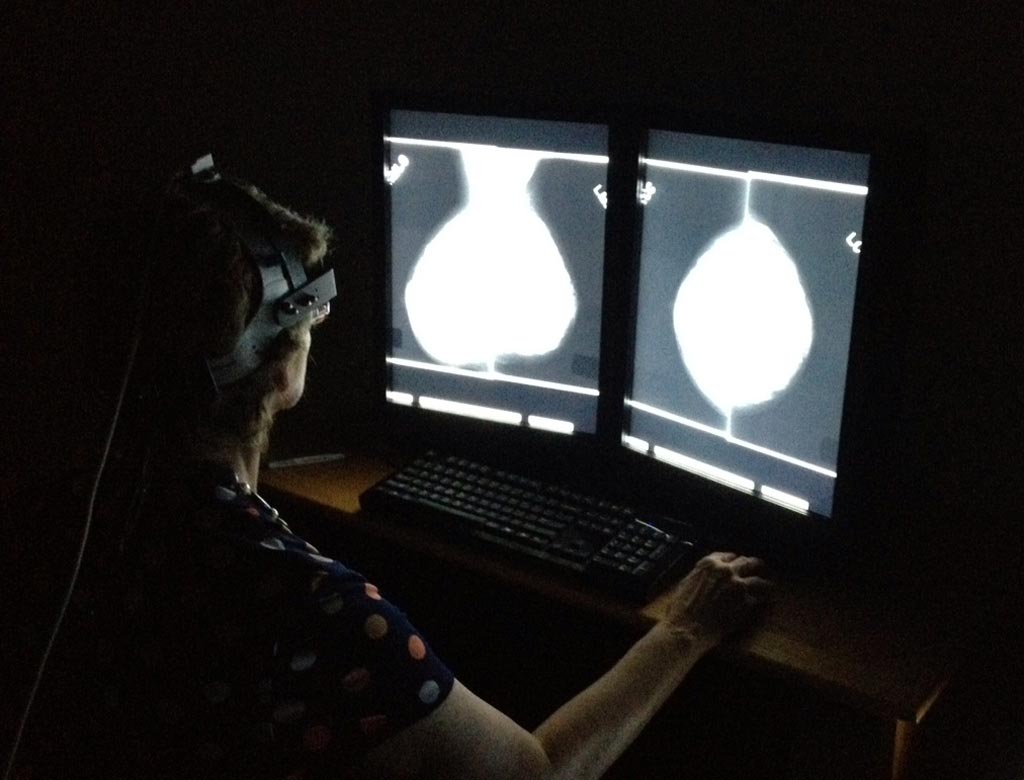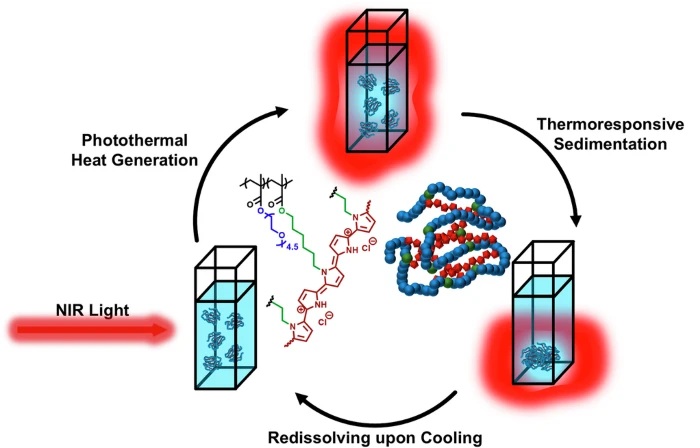AI-Based Tool Improves Diagnosis of Breast Cancer Tumors and Ability to Predict Risk of Recurrence
|
By MedImaging International staff writers Posted on 01 Oct 2021 |

Researchers have developed an artificial intelligence (AI)-based tool that improves the diagnosis of breast cancer tumors and the ability to predict the risk of recurrence.
The greater diagnostic precision enabled by the AI-based tool developed by researchers at the Karolinska Institutet (Stockholm, Sweden) can lead to more personalized treatment for the large group of breast cancer patients with intermediate risk tumors.
Every year, around two million women globally develop breast cancer. In the diagnostic procedure, tissue samples of the tumor are analyzed and graded by a pathologist and categorized by risk as low (grade 1), medium (grade 2) or high (grade 3). This helps the doctor determine the most suitable treatment for the patient. Hospitals have recently started to make limited use of molecular diagnostics to improve the precision of breast cancer risk assessment, but these methods are often costly and time-consuming.
In a study based on an extensive microscopic image bank of 2,800 tumors, researchers trained a new AI-based method for tissue analysis to recognize characteristics of high-resolution microscopic images from patients classified with grade 1 and grade 3 tumors. In an evaluation of the AI model, the researchers found that their AI-based method can further divide the patients with grade 2 tumors into two sub-groups, one high-risk and one low-risk that are clearly distinguishable in terms of the recurrence risk. The method is not yet ready for clinical application, but a regulatory approved product is under development. The researchers will now be further evaluating the method with the aim to have a product out on the market by 2022.
“Roughly half of breast cancer patients have a grade 2 tumor, which unfortunately gives no clear guidance on how the patient is to be treated,” said the study’s first author Yinxi Wang, doctoral student at the Department of Medical Epidemiology and Biostatistics, Karolinska Institutet. “Consequently, some of the patients are over-treated with chemotherapy while others risk being under-treated. It’s this problem that we’ve tried to resolve.”
“One big advantage of the method is that it’s cost-effective and fast, since it’s based on microscope images of dyed tissue samples, which is already part of hospital procedure,” said co-last author Johan Hartman, professor of pathology at the Department of Oncology-Pathology, Karolinska Institutet, and pathologist at the Karolinska University Hospital. “It enables us to offer this type of diagnosis to more people and improves our ability to give the right treatment to any one patient.”
“It’s fantastic that deep learning can help us develop models that don’t just reproduce what specialist doctors do today, but also enable us to extract information beyond the scope of the human eye,” added co-last author Mattias Rantalainen, associate professor and research group leader at the Department of Medical Epidemiology and Biostatistics, Karolinska Institutet.
Related Links:
Karolinska Institutet
Latest Industry News News
- GE HealthCare and NVIDIA Collaboration to Reimagine Diagnostic Imaging
- Patient-Specific 3D-Printed Phantoms Transform CT Imaging
- Siemens and Sectra Collaborate on Enhancing Radiology Workflows
- Bracco Diagnostics and ColoWatch Partner to Expand Availability CRC Screening Tests Using Virtual Colonoscopy
- Mindray Partners with TeleRay to Streamline Ultrasound Delivery
- Philips and Medtronic Partner on Stroke Care
- Siemens and Medtronic Enter into Global Partnership for Advancing Spine Care Imaging Technologies
- RSNA 2024 Technical Exhibits to Showcase Latest Advances in Radiology
- Bracco Collaborates with Arrayus on Microbubble-Assisted Focused Ultrasound Therapy for Pancreatic Cancer
- Innovative Collaboration to Enhance Ischemic Stroke Detection and Elevate Standards in Diagnostic Imaging
- RSNA 2024 Registration Opens
- Microsoft collaborates with Leading Academic Medical Systems to Advance AI in Medical Imaging
- GE HealthCare Acquires Intelligent Ultrasound Group’s Clinical Artificial Intelligence Business
- Bayer and Rad AI Collaborate on Expanding Use of Cutting Edge AI Radiology Operational Solutions
- Polish Med-Tech Company BrainScan to Expand Extensively into Foreign Markets
- Hologic Acquires UK-Based Breast Surgical Guidance Company Endomagnetics Ltd.
Channels
Radiography
view channel
AI Detects Early Signs of Aging from Chest X-Rays
Chronological age does not always reflect how fast the body is truly aging, and current biological age tests often rely on DNA-based markers that may miss early organ-level decline. Detecting subtle, age-related... Read more
X-Ray Breakthrough Captures Three Image-Contrast Types in Single Shot
Detecting early-stage cancer or subtle changes deep inside tissues has long challenged conventional X-ray systems, which rely only on how structures absorb radiation. This limitation keeps many microstructural... Read moreMRI
view channel
Novel Imaging Approach to Improve Treatment for Spinal Cord Injuries
Vascular dysfunction in the spinal cord contributes to multiple neurological conditions, including traumatic injuries and degenerative cervical myelopathy, where reduced blood flow can lead to progressive... Read more
AI-Assisted Model Enhances MRI Heart Scans
A cardiac MRI can reveal critical information about the heart’s function and any abnormalities, but traditional scans take 30 to 90 minutes and often suffer from poor image quality due to patient movement.... Read more
AI Model Outperforms Doctors at Identifying Patients Most At-Risk of Cardiac Arrest
Hypertrophic cardiomyopathy is one of the most common inherited heart conditions and a leading cause of sudden cardiac death in young individuals and athletes. While many patients live normal lives, some... Read moreUltrasound
view channel
Wearable Ultrasound Imaging System to Enable Real-Time Disease Monitoring
Chronic conditions such as hypertension and heart failure require close monitoring, yet today’s ultrasound imaging is largely confined to hospitals and short, episodic scans. This reactive model limits... Read more
Ultrasound Technique Visualizes Deep Blood Vessels in 3D Without Contrast Agents
Producing clear 3D images of deep blood vessels has long been difficult without relying on contrast agents, CT scans, or MRI. Standard ultrasound typically provides only 2D cross-sections, limiting clinicians’... Read moreNuclear Medicine
view channel
PET Imaging of Inflammation Predicts Recovery and Guides Therapy After Heart Attack
Acute myocardial infarction can trigger lasting heart damage, yet clinicians still lack reliable tools to identify which patients will regain function and which may develop heart failure.... Read more
Radiotheranostic Approach Detects, Kills and Reprograms Aggressive Cancers
Aggressive cancers such as osteosarcoma and glioblastoma often resist standard therapies, thrive in hostile tumor environments, and recur despite surgery, radiation, or chemotherapy. These tumors also... Read more
New Imaging Solution Improves Survival for Patients with Recurring Prostate Cancer
Detecting recurrent prostate cancer remains one of the most difficult challenges in oncology, as standard imaging methods such as bone scans and CT scans often fail to accurately locate small or early-stage tumors.... Read moreGeneral/Advanced Imaging
view channel
New Algorithm Dramatically Speeds Up Stroke Detection Scans
When patients arrive at emergency rooms with stroke symptoms, clinicians must rapidly determine whether the cause is a blood clot or a brain bleed, as treatment decisions depend on this distinction.... Read more
3D Scanning Approach Enables Ultra-Precise Brain Surgery
Precise navigation is critical in neurosurgery, yet even small alignment errors can affect outcomes when operating deep within the brain. A new 3D surface-scanning approach now provides a radiation-free... Read moreImaging IT
view channel
New Google Cloud Medical Imaging Suite Makes Imaging Healthcare Data More Accessible
Medical imaging is a critical tool used to diagnose patients, and there are billions of medical images scanned globally each year. Imaging data accounts for about 90% of all healthcare data1 and, until... Read more
Global AI in Medical Diagnostics Market to Be Driven by Demand for Image Recognition in Radiology
The global artificial intelligence (AI) in medical diagnostics market is expanding with early disease detection being one of its key applications and image recognition becoming a compelling consumer proposition... Read moreIndustry News
view channel
GE HealthCare and NVIDIA Collaboration to Reimagine Diagnostic Imaging
GE HealthCare (Chicago, IL, USA) has entered into a collaboration with NVIDIA (Santa Clara, CA, USA), expanding the existing relationship between the two companies to focus on pioneering innovation in... Read more
Patient-Specific 3D-Printed Phantoms Transform CT Imaging
New research has highlighted how anatomically precise, patient-specific 3D-printed phantoms are proving to be scalable, cost-effective, and efficient tools in the development of new CT scan algorithms... Read more
Siemens and Sectra Collaborate on Enhancing Radiology Workflows
Siemens Healthineers (Forchheim, Germany) and Sectra (Linköping, Sweden) have entered into a collaboration aimed at enhancing radiologists' diagnostic capabilities and, in turn, improving patient care... Read more





















